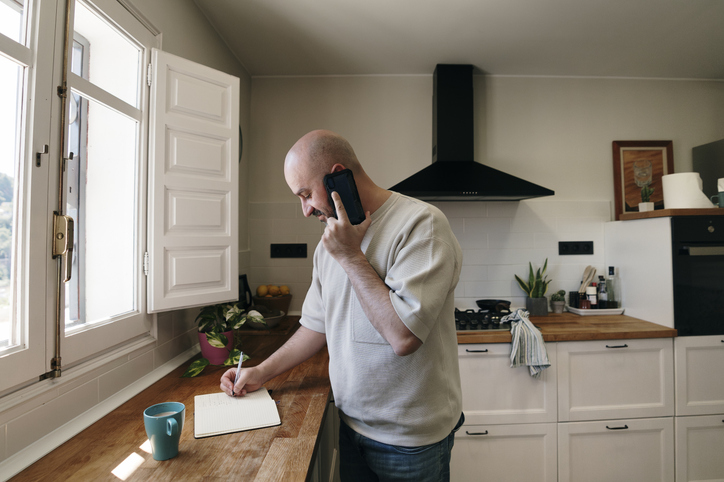School-related anxiety is a complex and challenging issue that can cause a great deal of distress to both children and families. However, there are solutions available and with the right support, most children and young people can go back to a normal pattern of school attendance.
What is School-Related Anxiety?
School-related anxiety, also known as school refusal, is when children go through
a period of reluctance to attend school, or they don’t attend for an extended period
of time due to emotional distress. These strong emotions typically include anxiety
or depression. Sometimes, these emotions are accompanied by issues at school such
as learning difficulties, ADHD or bullying. Issues at home, such as domestic violence
or parental separation, can also contribute to school refusal and related anxiety.
Children can also have physical symptoms, such as stomach pains, nausea, and headaches. Your child might make statements, such as “I don’t like school” or “I don’t want to go today”, but they probably won’t be able to explain why. This can be brought on by their physical symptoms.
School-related anxiety often occurs at critical times of transition, such as the early years of primary and high school. It’s also most likely to happen at the beginning of the school year, the beginning of a term, or at the beginning of the week.
Some teenagers may skip school and go to their local shopping centre, or meet up with their friends. This sort of behaviour is not considered school-related anxiety, but comes under
the category of truancy, as it’s done without the parent or carer’s knowledge or approval.

Self Compassion
While dealing with school-related distress and anxiety, it’s important to be gentle with both our child and ourselves. Although it may feel like it, school-related anxiety does not mean we are failing as a parent. It can put a strain on our emotions and our relationships, and can leave us feeling emotionally drained. We need to remind ourselves as parents and carers that we are doing our best in a very demanding situation. We are not failing, but we may
be stuck for a moment as we work out a way out of the situation.
Self-compassion will be more helpful than self-criticism as we navigate our way ahead.
COVID-19
The disruption to schooling caused by the impacts of COVID-19 has increased the frequency of school-related anxiety. COVID-19 has also led to inconsistent patterns of attendance as schools opened and closed in unpredictable ways, which for many students, led to them losing a consistent pattern of attendance.
Many students found it hard to keep dealing with the stress of returning to school multiple times, with some of them going on to develop attendance issues.
What Can I Do?
- First, if you think your child is starting to show signs of reluctance to go to school, it is best to act sooner rather than later. We have to strive to not to let our child stay home without a valid reason. When we allow a child to stay home, they feel a sense of relief and this feeling tends to lead them to repeat their behaviour the next day.
- School-related anxiety requires a team approach—it is difficult to manage it alone. Having the support of mental health professionals, the school, and possibly your own personal support network will give the best possible chance of success.
- It is also important to be aware that there are not necessarily any quick fixes and that there will probably be setbacks along the way. This is a normal part of the process of making things better.
We just need to stay hopeful and maintain our belief that things will improve as we work towards a solution.

Mental Health Support
School-related anxiety is very commonly related to a mental health challenge, so it’s a good idea to get a mental health assessment.
Knowing about underlying mental health concerns, such as anxiety and depression, helps to identify and treat the underlying cause of the behaviour. Having this understanding also helps us not to see this as a behavioural problem. It helps us know that our child is not just being stubborn or uncooperative.
A good starting point for a mental health checkup is seeing your GP or directly contacting a service, such as headspace, or reaching out to a psychologist. You can visit healthdirect.gov.au to find a service near you.
School Support
One factor that is often present in school-related anxiety is that young people underestimate their ability to cope with returning to school. They worry that everyone will ask where they have been, or that they will not be able to catch up on missed work, or that friends won’t want to be with them.
It is important that your family establishes a trusting working relationship with the school to help your child. The school can help in many ways, including:
- Developing an attendance plan to gradually help a young person increase their attendance at school
- Having someone there to warmly meet and welcome the young person to school each day
- Exploring issues at school that may be contributing to the school-related distress and anxiety, such as bullying
or learning issues - Provide school counsellor support
- Establish a safe place for the student
to go to if they are feeling overwhelmed at any point during the day.
Parent Support
Our role as a parent or carer is critically important. We need to communicate to our child our quiet confidence and belief that they will go to school each day. This message must not be given in anger or frustration, but with compassion and kindness. But, we must be clear to our child that we have a confident expectation that they will go to school, even if they do not really feel like it on any particular day.
As a parent or carer, we also have to be aware of how school difficulties can have an impact on us. For many of us, we can start to have feelings of anxiety and hopelessness in response to our child’s attendance issues.
We can start to worry and become distressed when we notice that our child is feeling mentally and/or physically unwell at the thought of going to school.
At times, our worries leads us to allow them to stay home or to leave school early if they are there.
When dealing with school reluctance, there may be days when we can feel that we are not making progress or are even going backwards, but this is a normal part of the process of things getting better.
So, at times where our child does not go to school, it is important that we do not lose hope but accept it as a temporary setback and see tomorrow as chance for things to improve.
Supportive Words
Our words are powerful and as a parent or carer, what we say can influence how our child feels and behaves. However, there are some messages are not helpful or supportive.
For example: “I don’t know what to do with you, I’m fed up! You are going to get into serious trouble. How will you ever get a job? You are ruining your life and are upsetting the whole family.”
A more helpful and supportive message would be…
“I know that it is really hard for you to get to school. I know it is not easy. And I am going to support you and do whatever it takes to get you back to school. I know it is hard but I know you can do it.”
This example is a better approach. It is a warm and supportive but not angry message that communicates a clear belief that this is a solvable problem. It also communicates an expectation and confidence that your child will go to school. This must be the consistent message that we provide to our child. It is not a quick fix to the situation, but it is an essential part
of the solution.

Summary
Both you and your child need kindness when dealing with the challenge of school-related anxiety. We need to acknowledge that attending school is not easy for a lot of young people who are still developing their skills to deal with their mental health and the challenges that life provides them.
As parents or carers, we must acknowledge the impact of school-related distress on ourselves. We must strive to maintain our hope and our connection with our child during this challenge, and we must also believe in and support ourselves, acknowledging that this is a common struggle for parents and carers and it is not a sign that we are a failure in some way.
With the right support provided to your family and to your child, school-related anxiety will end.
If you are a parent or carer who’s needing support or wanting someone to talk to, call us
on 1300 1300 52 or visit parentline.org.au. Our team of experienced and qualified counsellor
are available seven days a week, 9am to 9pm Monday to Friday and 4pm to 9pm Saturday & Sunday.
Parent Line NSW is proudly funded by the Department of Communities and Justice NSW.


